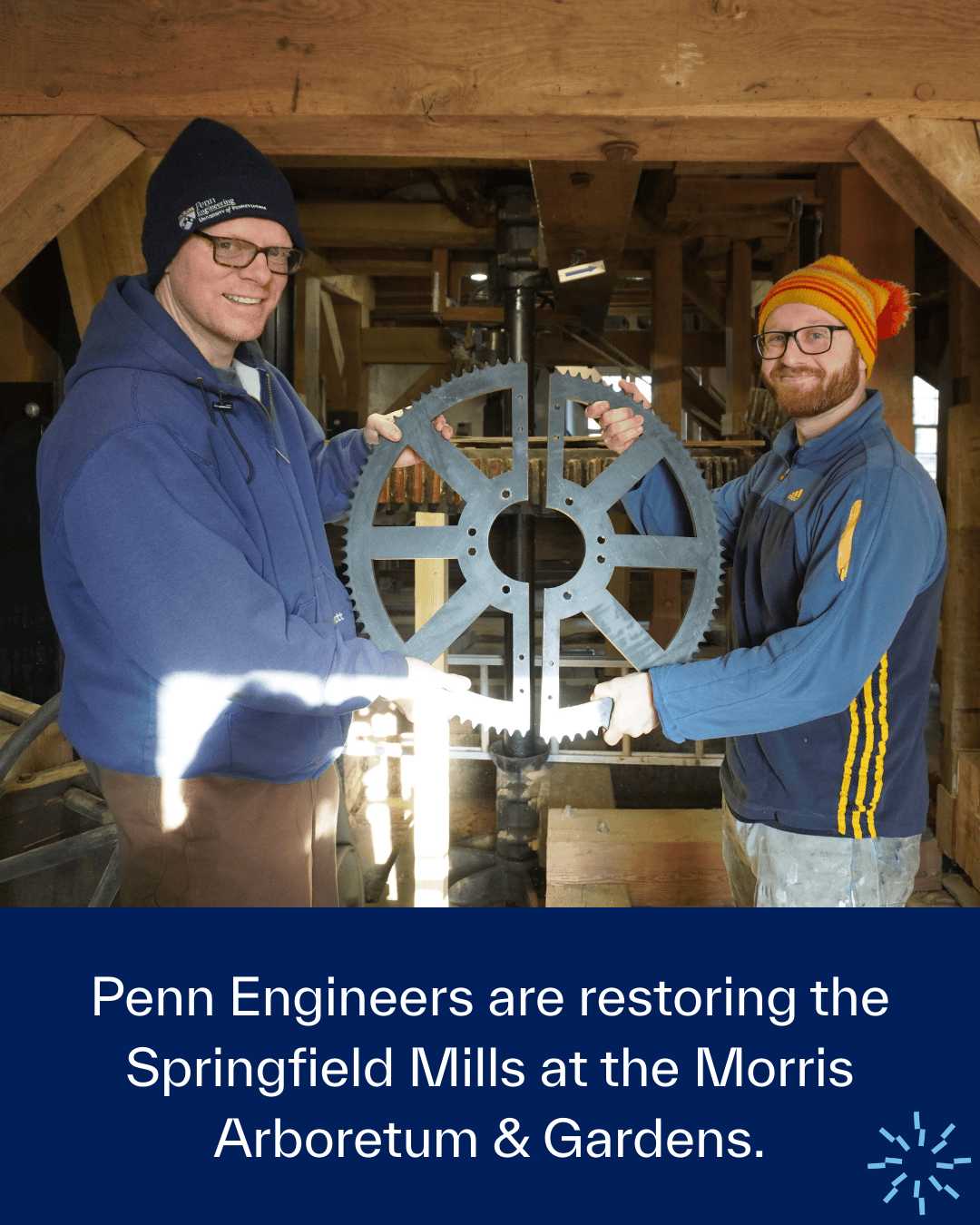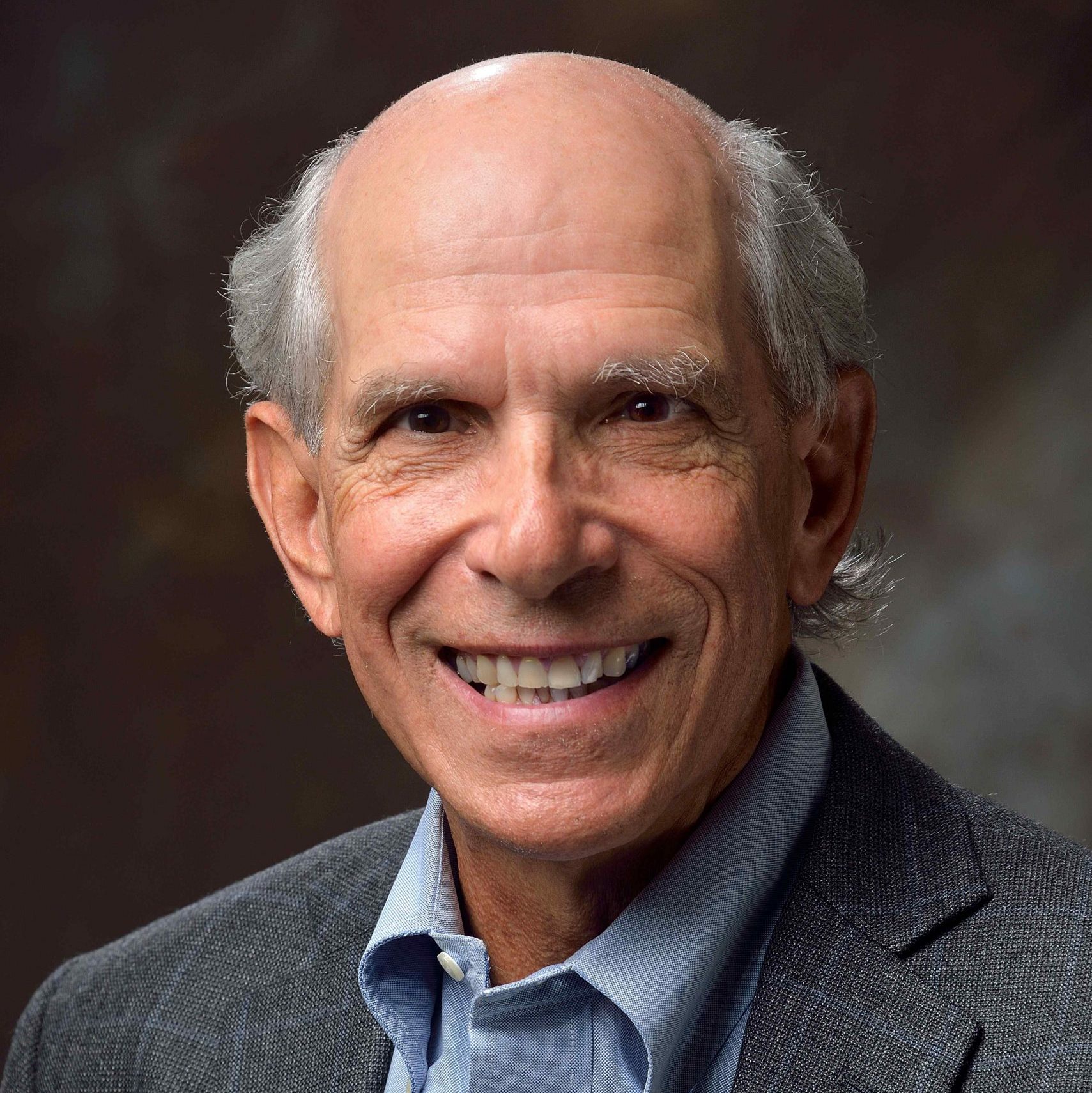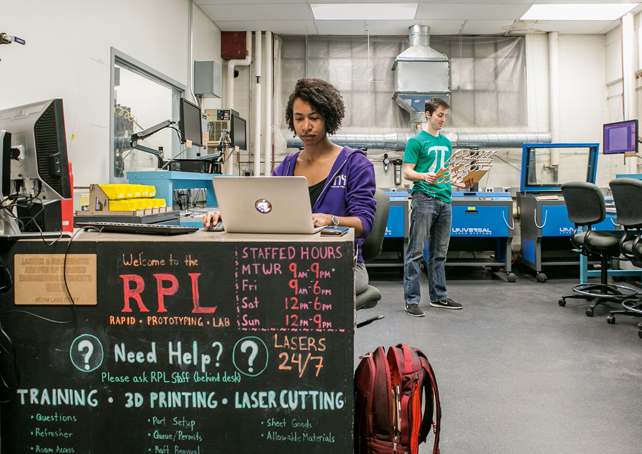Featured News

Ralph Teetor: The Blind Penn Engineer Who Changed the Way We Drive
Ralph Teetor, who lost his sight by the age of six, used his heightened senses and passion for engineering to change how the world drives.
In 1912, he graduated from the University of Pennsylvania with a degree in Mechanical Engineering, becoming one of the first blind graduates of Penn and the first blind engineer in the United States.
From the perfectly balanced piston ring to the first cruise control device, Teetor’s inventions reshaped the automotive industry and continue to influence the technology behind today’s vehicles.
His legacy continues today through the Mechanical Engineering and Applied Mechanics (MEAM) Ralph Teetor Award, presented annually to a Penn Engineering senior who exemplifies ingenuity, creativity, scholarship and service. READ MORE

Douglas Jerolmack Elected American Physical Society Fellow
Douglas Jerolmack has been elected to the 2025 class of American Physical Society (APS) Fellows. This highly selective honor recognizes those who have made outstanding advances and contributions in their fields.
Jerolmack, the Edmund J. and Louise W. Kahn Endowed Term Professor of Earth and Environmental Science and Professor in MEAM, is awarded “for pioneering investigations into the universal behaviors governing the formation, failure, and flow of soft earth materials, and for outstanding leadership in building a soft earth geophysics community.”

A ‘Rosetta Stone’ for Molecular Systems
Penn Engineers have created a mathematical “Rosetta Stone” that links the microscopic world of atoms and molecules to the macroscopic behaviors they produce—like proteins unfolding, crystals forming, and ice melting—without the need for costly simulations.
Using their framework, called Stochastic Thermodynamics with Internal Variables (STIV), the team solved a decades-old challenge in phase-field modeling, offering a new way to predict how matter evolves at the boundaries between phases. READ MORE

Helping robots work together to explore the Moon and Mars
Penn Engineers, NASA, and five other universities tested robotic systems designed to help unmanned explorers cooperate in the dunes of White Sands, New Mexico, paving the way for Moon and Mars exploration.
The team envisioned robots that could physically connect and apply pulling and pushing forces to help each other maneuver over obstacles, says Cynthia Sung. Current Mars and lunar rovers avoid areas such as slopes steeper than five degrees entirely, as mission planners won’t risk a multimillion-dollar rover getting stuck or damaged. READ MORE

How one student’s experience is helping to shape renewable energy education
In the midst of the complicated landscape of energy, economics, and environmental policy, third-year Mechanical Engineering and Applied Mechanics (MEAM) student Ngaatendwe Manyika is helping to develop a new course for the next generation of engineers building renewable energy sources. READ MORE

Heritage and Innovation: How Penn Engineers are Restoring the Historic Springfield Mills
A unique collaboration between the Department of Mechanical Engineering and Applied Mechanics (MEAM) at Penn Engineering and the Morris Arboretum & Gardens is harnessing innovation to resurrect a piece of Penn and Philadelphia history: Springfield Mills.
Ultimately, the project not only aims to restore the mill to operational status for public demonstrations but also serves as a testament to the power of interdisciplinary collaboration between historical preservation and modern engineering innovation. READ MORE

John L. Bassani Awarded the Society of Engineering Science William Prager Medal
John Bassani, Professor Emeritus in Mechanical Engineering and Applied Mechanics (MEAM), has been awarded the 2025 Society of Engineering Science (SES) William Prager Medal for outstanding research contributions in theoretical solid mechanics.
“Being recognized by my community is validation that my nearly 50-year approach to research has been fruitful and, importantly for me, worth continuing,” says Bassani. “I hope that my work inspires my colleagues, especially collaborators in our current research on embolization, which builds on my work on fracture that began in the aerospace industry just after I completed my bachelor’s degree. It’s rewarding to see that my career trajectory has led to this medal in recognition of that.” READ MORE
MEAM Events
MSE Seminar : “Semiconducting Materials for Opto/Bioelectronic Applications; Chemistry, Processing and Device Engineering” Antonio Facchetti – Georgia Institute of Technology
MEAM Seminar: “Multiplying the Coolness of Gels: Messy Networks, Double Networks, and More”
MEAM Ph.D. Thesis Defense: “Mechanical Behavior and Fracture of Fibrous Materials at Large Deformations”
Announcement
Welcome!
Welcome to Mechanical Engineering and Applied Mechanics (MEAM) at Penn! We are a vibrant, dynamic, and interactive community. We focus on our high-caliber undergraduate and graduate programs, which combine rigorous education in the fundamentals with hands-on projects and research into novel problems and advanced applications.
Learn More

